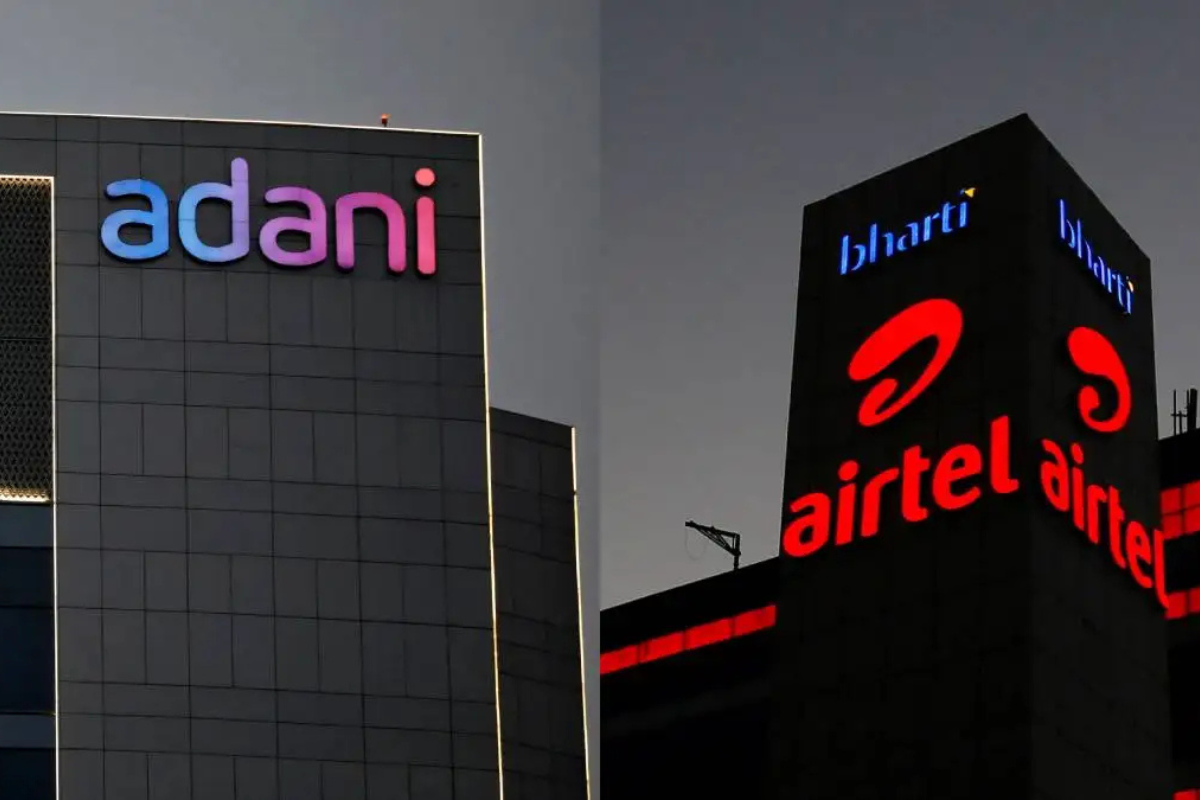In a significant move, Bharti Airtel has announced its acquisition of Adani Group’s 5G spectrum holdings, marking the exit of Adani from the telecom spectrum business almost three years after its surprise entry into 5G spectrum auctions. Airtel will purchase 400 MHz of spectrum in the 26 GHz band from Adani Data Networks, a deal valued at approximately Rs 155 crore.
Adani Group had originally acquired the 400 MHz spectrum in the 26 GHz band during the July 2022 spectrum auctions.
Adani Exits 5G Spectrum Business After Inactivity and Penalties
Almost three years after entering the 5G spectrum auctions, the Adani Group is selling its sole telecom spectrum holding to Bharti Airtel. In a deal announced on Tuesday, Airtel and its subsidiary Bharti Hexacom entered into definitive agreements to acquire rights to use 400 MHz of spectrum in the 26 GHz band from Adani Enterprises-owned Adani Data Networks.

Although neither Airtel nor Adani has disclosed the financial specifics, industry insiders estimate the value of the transaction to be around Rs 155 crore. Under DoT spectrum trading rules, Airtel must also pay the remaining government dues linked to the spectrum.
Adani had acquired the spectrum in July 2022 for Rs 212 crore, paying an upfront sum of Rs 18.9 crore and agreeing to pay the remaining balance over 20 years. Reports suggest Adani has already paid about Rs 55 crore, not counting penalties for missing rollout deadlines.
Adani’s 5G Spectrum Plans: Intentions, Struggles, and Challenges
Adani planned to use the spectrum for private networks across ports, airports, logistics, and energy operations. The company had clearly stated it had no intentions to enter the consumer mobility market. Adani secured 100 MHz each in Gujarat and Mumbai, along with 50 MHz each in Andhra Pradesh, Rajasthan, Karnataka, and Tamil Nadu.

However, despite holding a unified telecom license, Adani Data Networks failed to roll out any commercial services. The failure triggered penalties because the company didn’t meet the minimum rollout requirements. DoT guidelines require spectrum holders to launch services in at least one area per licensed circle during the first year. Though the benchmarks are minimal, especially in non-metro circles, Adani’s failure to meet these targets resulted in penalties.
Why Adani Exited the 5G Spectrum Market: Struggles and Strategy
Late last year, Adani had informed the Telecom Regulatory Authority of India (Trai) that it struggled to find practical use cases for its limited spectrum and requested more time to meet its rollout obligations. Analysts expressed surprise that Adani couldn’t even launch basic services like enterprise broadband or localized 5G at airports or ports.

Despite this, Adani continued to pay its annual dues. Since DoT rules ban spectrum surrender before 10 years, and Adani had no use for it, the company chose trading as the only way out Telecom trading rules permit spectrum transfers between operators after two years of holding.
Airtel Acquires Adani’s 5G Spectrum: Strengthening Its 5G Strategy
Airtel plans to use the new spectrum to boost fixed wireless access (FWA) services, a key 5G use case for consumers Both Airtel and Reliance Jio have been deploying FWA solutions in select cities, and the acquisition will allow Airtel to strengthen its position in critical markets, particularly in enterprise and home broadband solutions tied to 5G.

For Adani, this transaction represents a quiet exit from its telecom foray, underscoring the complexities of achieving commercial viability in the capital-intensive 5G sector.




